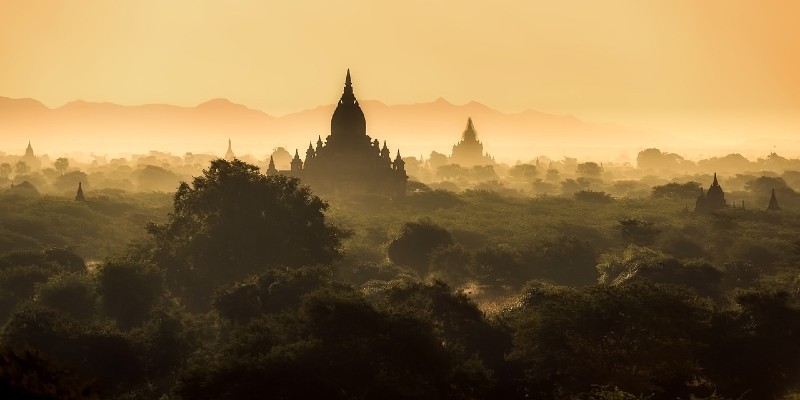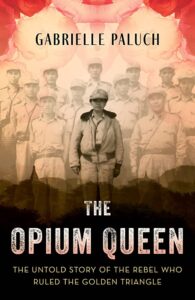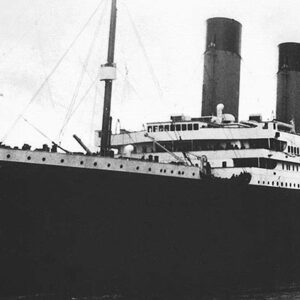There hadn’t really been uncensored newspapers in Myanmar since the military coup in the sixties. The Myanmar Times publisher, a bald-headed, ruddy-faced Australian, bragged that he had smuggled the mint-green printing presses in from New Zealand in 1999, right under the junta’s nose. Back then, when the paper first started printing, it was illegal to own something as innocuous as a photocopying machine. His first Burmese business partner had been in jail on retroactive censorship charges for the last five years. He liked to think of himself as a subversive thorn in the side of a repressive government; his critics saw him as an opportunistic apologist who published government propaganda.
The publisher kept a framed photo of himself at a drug-burning ceremony in Shan State on a shelf in his office. In the photo, blocks of heroin were stacked neatly alongside methamphetamines under a festive display with ribbons. The piles looked like they were being presented at an elementary school science project. He grinned gleefully in the picture, posing for the camera in front of the piles about to be set alight in a raging bonfire, holding a packet wrapped in brown paper in his hand.
The government made a big media event out of setting seized drugs on fire in Shan State, where the publisher explained all the “best” narcotics in the country came from. Journalists and diplomats were flown out to observe, to make a show out of cracking down on narcotics producers, in the hopes the photos would make it into the press.
He pointed to the brown paper-wrapped packets in the photo with a knowing look. “That’s some good stuff, too. Top quality No. 4, China White.”
That fluffy white powder—the most potent, injectable form of heroin—had been seized on the road from Kokang. It was derived from morphine produced in poppy fields controlled by generals who had once answered to Olive. But I did not know that yet. A coworker later told me the publisher had returned from the drug burning ceremony with a brown paper packet stuffed in his carry-on, which had eventually made its way to a staff party. He assured me that the heroin had indeed been of top quality.
“They love to make a spectacle of their counter-narcotics operations, but they’re all benefiting from it. That is why the military will never lose its grip on power,” the publisher told me brashly, referring to the Burmese generals in the photo.
The Burmese military pitted rebels against one another in competition for control of lucrative resource concessions like teak, jade, and also illicit narcotics. Rebel armies who signed ceasefire agreements with the government enriched the generals who turned a blind eye to their illicit trade and then cracked down on them when it was convenient.
“Everybody’s in on it: military, rebels, even the CIA,” the publisher said.
I was skeptical. Perhaps he was a fan of the Mel Gibson comedy Air America, about pilots in Vietnam who discover they’re being used as cover by the CIA to traffic opium. He sounded like the Dim Light.
What I did not know at the time: the Dim Light was right. The roots of the dispute in Kokang were indeed events of the colonial era; and CIA forces did, in fact, get deeply involved in the narcotics trade. And many believed that Kokang has been cursed with upheaval, ever since the indomitable Olive Yang got carried away with overwhelming selfishness.
The drab pages of the Dim Light proclaimed on a daily basis that the Union was well on its way to transitioning from a military dictatorship to a “discipline-flourishing democracy.” Senior General Than Shwe intended to allow the Union to elect its first civilian government in five decades and retire.
“‘Discipline-flourishing’ means ‘military-controlled,’” Geoffrey told me one day. “Than Shwe knows what they do to dictators, and he doesn’t want to die in jail.”
When the anticipated historic election finally arrived in November of 2010, I took an assignment with Voice of America because their shortwave radio news broadcasts were uncensored.
The broadcasts were regarded by the government as so threatening, there was a daily feature in the Dim Light denouncing Voice of America as foreign meddling, in a small box that read like Orwellian poetry:
“VOA airing skyful of lies! Saboteurs watch your step! The public be warned of killers in the air waves!”
It was slightly puzzling, if not insulting to a well-meaning reporter like me, to be accused of sabotage or be constantly asked if Voice of America was a cover organization for the CIA.
But I was so eager to work for an uncensored news outlet, I thought nothing of it; so I passed the State Department contractor background check and published under a pseudonym to avoid being blacklisted. By the end of the election, it was like a spell had been broken. Senior General Than Shwe retired as planned, and his handpicked successors were elected with a resounding majority. The unmentionable Aung San Suu Kyi was released. Other political prisoners were granted amnesty, and even the censorship office closed. But nothing was quite what it seemed. Journalists were silenced with bogus lawsuits. New dissidents were jailed. What started as riots in the Northwest turned into a genocide of ethnic Rohingya Muslims before our eyes, and the military helped perpetrate it.
***
Olive, meanwhile, was enjoying a new home, surrounded by soldiers and a young, attractive Chinese nurse with long, silky hair. The militia headquarters several hundred miles north near the Chinese border wasn’t Olive’s ancestral home, but this was the safest possible place for Olive to be. Kokang was still crawling with mercenaries. Every afternoon, though still in an apparently frail state, Olive watched the troops rally in formation on their porch, giving orders from a wheelchair.
It wasn’t until 2015, when the Kokang rebel militia that was purged my first month at the Myanmar Times came back for vengeance, that I first heard of Olive.
That’s when Olive’s purged distant cousin staged the deadliest attack on the Myanmar military in recent history, recapturing the territory from which he’d been chased years prior, in a last-ditch effort to force his way into the peace process. Some ethnic groups had already signed agreements when a wave of one thousand Kokang rebels caught the Myanmar military in their old garrisons by surprise.
Nearly eight hundred government troops had already died by the time I attended a public ceremony for the signing of a historic nationwide ceasefire that March.
The agreement was to include every single rebel group; a peace agreement to end all civil wars in Myanmar that had been raging more or less uninterrupted since the country had gained independence. Kokang rebels were still engaged in battle with the army as the pen hit the paper on the peace agreement.
In the press gaggle, I asked the government negotiator if he expected to make peace with Kokang rebels.
“Those Kokang are actually an illegal renegade group. They are Chinese, not Myanmar,” a negotiator told us, describing the Kokang rebel army as a Beijing-funded drug-trafficking militia, with an irrelevant claim to power.
“Are they not entitled to Myanmar citizenship?” I asked.
“Not exactly,” he claimed, “besides, their ceasefire expired.”
Ah yes, I thought, the old handshake-ceasefire that had crumbled during my first month at the Myanmar Times. Another journalist suggested to me that “Miss Hairy Legs” might know something about the ceasefire’s terms. Miss Hairy Legs had apparently acted as a silent broker.
Miss Hairy Legs was an extremely perplexing name. It was unusual for someone in Myanmar to have such a descriptive moniker—and frankly, unusual for women to have hairy legs. Miss Hairy Legs, or Olive Yang, was mentioned fleetingly in a smattering of books that alluded to her domination of the opium trade with a small personal army named “Olive’s Boys” who eventually staged a coup against her feudal chieftain brother. She was repeatedly described as having taken a gun to school in her backpack, had a tendency to dress like a man, and had a high-profile lesbian affair with a famous movie star. And in one account, she was alleged to have cooperated with the CIA.
I had never before heard of a military leader in Myanmar, rebel or otherwise, openly admitting to being a lesbian. It was surprising to hear that a woman, much less a cross-dressing one, had been at the table for the very first peace deal the government had signed with a rebel army whose name was never mentioned—even though there was a time when Miss Hairy Legs was infamous.
There was a plethora of infamous characters that swirled around the Golden Triangle whose real lives had inspired fiction scattered across novels and legends.
There was the American Baptist missionary William Young, who came to proselytize hill tribespeople in the nineteenth century, baptized in remarkable numbers, delivering entire villages from their primitive ways. His sons and grandsons eventually became US intelligence assets during World War II and beyond, inspiring volumes of spy pulp throughout the Cold War.
Or the covert paramilitary operative Tony Poe who became infamous for keeping the pickled heads of communist guerrilla leaders he killed in jars. He swore to have inspired the Colonel Kurtz character in the film Apocalypse Now and rescued the Dalai Lama from execution—both were exaggerated claims that were only partially true.
There had even been a beauty-queen rebel-leader, Louisa Benson, crowned “Miss Burma” before leading her deceased husband’s militia on the border in the 1960s.
Since my first day of skepticism in the publisher’s office at the Myanmar Times, I had learned one of the first eyebrow-raising failures of covert US foreign policy executed by the newly formed CIA during the Cold War involved arming and financing anti-communist Chinese troops in exchange for opium, firmly lodging them in Burmese borderlands as a military threat for decades.
CIA-supported anti-communist guerrilla armies provided the intelligence-gathering and logistics basis for clandestine operations throughout the Cold War, including ethnic minority rebel mercenaries in the secret war in Laos against the North Vietnamese. Much to my dismay, I had learned the transmitters that were used for the radio stories I did for Voice of America were stationed in old Cold War–era CIA facilities that had been logistics hubs to support those missions and were even used as torture blacksite facilities.
By the early 1970s, millions of dollars worth of heroin seized in New York City had originated from their enterprises. Networks once supported by the CIA were eventually blamed by US Congress for supplying the heroin epidemic. That is how so many legendary opium warlords from Shan State rumored to be cooperating with the CIA, came to be counterintuitively condemned by drug enforcement agencies.
The most infamous among them, the “Godfather of Heroin,” Lo Hsing Han, once sentenced to death for his crimes but celebrated by hundreds as a hero at his funeral. Not to be confused of course with the “King of Opium” Khun Sa. Between the two of them, they supplied almost half of the heroin consumed worldwide for over a decade, leading to indictments by drug enforcement officials in federal court in Brooklyn.
It was wild but plausible that “Miss Hairy Legs” was swept up in missions designed to set the foundation for US hegemony in the twentieth century through covert CIA narcotics-funded operations, in the same crucible as the architects of the Cold War.
But for every story about Olive Yang, there was an opposite one that seemed like it could also be true. One account claimed she was illiterate, and yet apparently, she had been a teacher. She was either a folk hero or a murderous bandit. Either a fearsome dragon-lady with great riches and land to her name or a poverty-stricken widow. A champion of democracy or a dictator. Pioneer or mental patient. There were so many conflicting details about Miss Hairy Legs that they couldn’t all be true. It seemed like people were willing to believe anything about her.
Olive’s life and identity defied every Burmese social norm and sounded more like the opium-slinging antiheroes draped across the covers of the raunchy spy novels that littered Yangon’s downtown bookshops.
At first, I encountered a broad canon of death rumors. For every different name by which she was known—Olive Yang, Miss Hairy Legs, Number Two, Two-Gun Mulan, the Kokang chieftain’s sister—she appeared to have died in a different way.
There were those who swore she was killed at the hands of, curiously enough, the infamous Godfather of Heroin himself, Lo Hsing Han, who allegedly owed his success to Olive’s patronage.
Some told me the infamous drug lord of the Golden Triangle, the “double-gun old lady,” was executed for heroin trafficking in China.
Another journalist told me he had given up his search for the legendary figure, because he’d heard she had supposedly died in Yangon in the infamous Insein Prison. But Olive’s name didn’t appear in any of the records of known deceased political prisoners. So when I then heard the rumor that she had died in an insane asylum, I concluded the confusion must have arisen out of a foreigner’s misunderstanding of the name of Insein Prison.
The belief Olive was dead was so widespread that I started to look for graves. But there was no obituary for her anywhere—not in English, Burmese, or Chinese.
It seemed like a great oversight, that at the beginning of the interminable narcotics war was a gender-queer opium kingpin of noble descent and secret broker of a peace deal nobody had ever inquired about. Surely the story of how the Yang family came to be in Myanmar and gained noble status was important to answering the question as to whether or not Kokang people should be considered part of Myanmar or China and why the conflict in Kokang was happening in the first place.
My questions about Olive’s supposed exploits quickly filled several pages, recalling the Dim Light’s condemnation of CIA forces and “overwhelming selfishness” I had read about my first week in Myanmar.
Was it possible the extraordinary stories about the legendary CIA asset and folk hero were true? I resolved to find Olive, armed with a list of details that I hoped she could verify, starting at the very beginning, with the family’s ancestral origins, and the Dim Light’s story about events of the colonial era.
___________________________________
Excerpted from the book The Opium Queen: The Untold Story of the Rebel Who Ruled the Golden Triangle by Gabrielle Paluch. Used by permission of the publisher Rowman & Littlefield. All rights reserved.


















